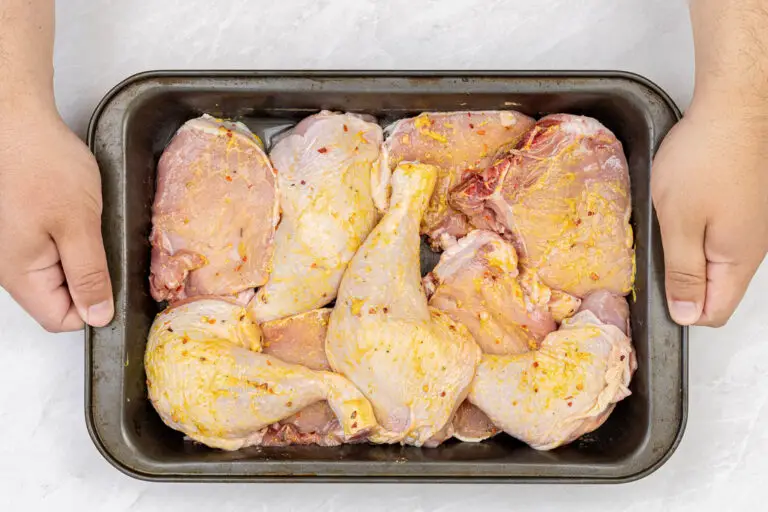Vinegar and baking soda are two of the most commonly used natural cleaning agents in households. Known for their effectiveness in tackling tough stains and unpleasant odors, these two ingredients can work wonders when used separately. But what happens if you boil vinegar and baking soda together? In this article, we will uncover the chemistry behind these two compounds and how boiling them together creates a chemical reaction that can be useful as a natural cleaner.
Introduction
Natural cleaning remedies have gained popularity over the years due to their non-toxic composition and eco-friendliness. Among the most popular natural cleaners are vinegar and baking soda, which can effectively clean surfaces in your home like countertops, stovetops, dishes, floors, etc. These two ingredients work separately but can become more effective when combined to create a fantastic cleaning agent. Let’s take a look at what each ingredient is.
What Is Baking Soda?
Baking soda is a versatile white powder that is commonly found in almost every household worldwide. It has many uses such as cooking, neutralizing acidic odors, deodorizing carpeting or fabrics It’s chemical-formula is NaHCO3. Being an alkaline substance with pH 8-9 levels with weak alkaline capacity explains why using this as a cleaner gives good results.
What is Vinegar?
Vinegar is another common household item that contains acetic acid as its primary ingredient. The chemical formula for vinegar (acetic acid) is CH3COOH making it acidic by nature. Therefore, vinegar’s pH usually ranges between ~2-4 which makes this an excellent substance that dissolves dirt easily.
Chemical reaction when boiling vinegar and baking soda together
When you mix vinegar with baking soda there comes an instant reaction. This involves carbon dioxide gas being formed while water mixes with sodium acetate via bubbling. The heat will raise both vinegar and baking soda’s temperature, allowing for reactions between them to happen faster.
The Chemical Equation
The positive ion of sodium (Na+) in the baking soda and the negative ions of the acetate (CH3COO-) in vinegar react together when they come into contact, producing sodium acetate dissolved into water with carbon dioxide exhaled after bubbling. The chemical equation is represented as:
CH₃COOH + NaHCO₃ → CH₃COONa + H₂O + CO₂.
Why Do People Boil Vinegar and Baking Soda Together?
There are several reasons why people might boil vinegar and baking soda together; here are some main reasons:
- Cleaning drains or pipes: Boiling vinegar with baking soda can clear up clogs by dissolving grease buildup, mineral deposits which often causes drain blockages.
- Deodorizing garbage disposals: Microwave boiling a solution of vinegar plus baking soda for about 30 seconds and pour it down your garbage disposal to get rid of unpleasant smells.
- Removing stains from cookware or appliances: When boiled with vinegar, baking soda loosens up grime from different surfaces hence promoting easy cleanup.
- Cleaning surfaces around homes: Mix equal parts of baking soda along with a cup or two white vinegar then let it sit on a dirty surface before scrubbing away dirt particles vigorously
Benefits of Using Vinegar and Baking Soda Instead Of Commercial Cleaners
People prefer home uses like these due to several benefits compared to commercially available cleaners:
Easier on human health than toxic chemical fumes
Commercial cleaners contain harsh chemicals which can release carcinogenic compounds that affect human respiratory systems. By using natural cleaning agents like vinegar plus baking powder your hackles will thank you.
Eco-friendliness since it involves non-toxic ingredients, making them gentle on ecosystems.
Natural cleaning is safer for living beings in the environment since these agents contain bio-compounds that decompose and don’t contaminate soil or water bodies.
Precautions To Follow When Boiling The Two Ingredients Together
Here are some precautions one should take while boiling vinegar and baking soda together:
- Avoid inhaling vapor: It’s essential to avoid putting your face too close when conducting the experiment as the flowing vapor can cause respiratory irritations.
- Don’t put your hands into the boiling mixture: Avoid touching hot liquids with bare flesh without proper protection.
Conclusion
Boiling vinegar and baking soda together has become a popular alternative to chemical cleaners, thanks to its eco-friendliness, effectiveness, and easiness of use. Once combined, they create a powerful cleaning solution that can dissolve grease, deodorize surfaces, unclog pipes among others. Moreover, it’s an excellent substitute for commercial cleaners due to the natural ingredients hence contributes positively toward environmental sustainability. To ensure safety, it’s vital to follow precautions by avoiding direct contact with chemicals or inhalation of vapor so you won’t get sick.
Q&A
- Q: Can you really boil vinegar and baking soda together?
Absolutely! You can combine these two ingredients in a pot and heat them on a stove or any heat source.
- Q: What is the purpose of boiling vinegar and baking soda together?
The chemical reaction between vinegar (acetic acid) and baking soda (sodium bicarbonate) produces carbon dioxide gas, water, and a salt called sodium acetate. This reaction is typically used to create homemade cleaning solutions or to unclog drains.
- Q: Is it safe to boil vinegar and baking soda?
As long as you don’t inhale the fumes, it’s generally safe to boil these ingredients together. However, be aware that the mixture will bubble up quickly once heated so be sure to let the reaction settle down before stirring or adding more ingredients.
- Q: Can I substitute other types of vinegar or baking powder for this experiment?
You can use white distilled vinegar instead of apple cider vinegar, but avoid using balsamic or red wine vinegar as they may leave stains or residues. You can also use plain baking powder instead of baking soda but the effect will not be as pronounced as sodium bicarbonate is more potent in generating carbon dioxide gas during the reaction compared to baking powder containing sodium aluminum sulfate.



